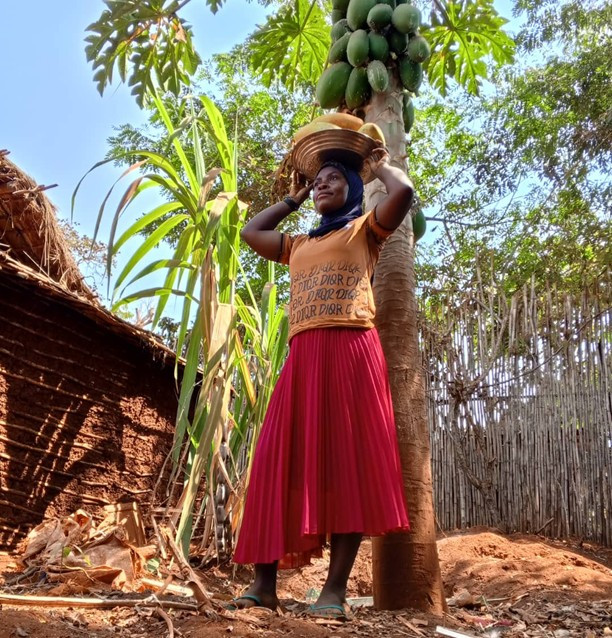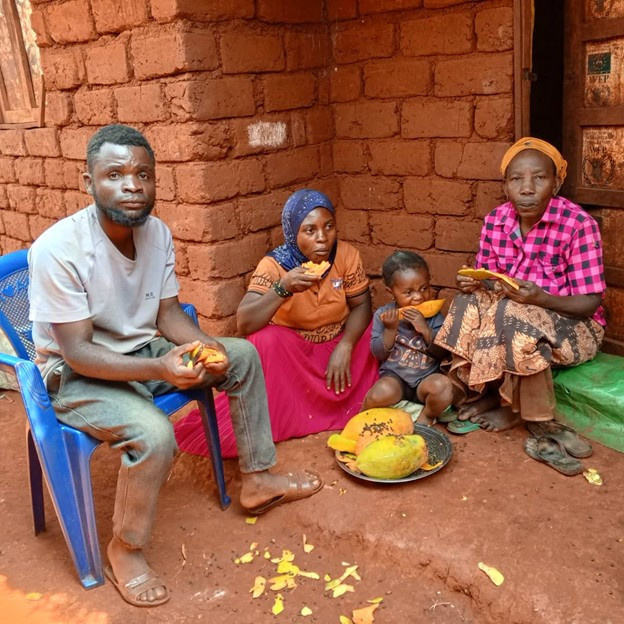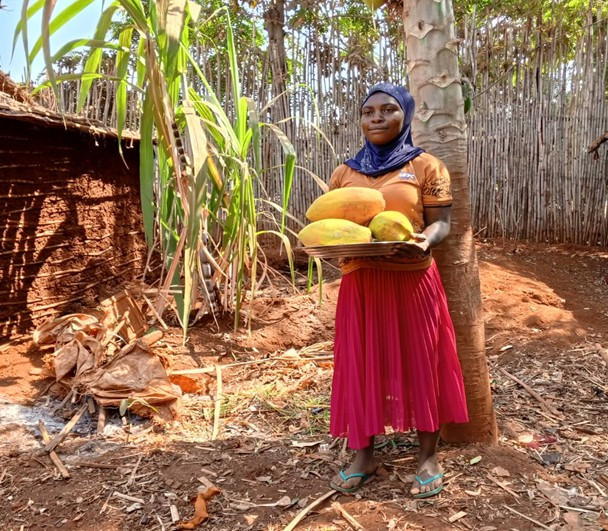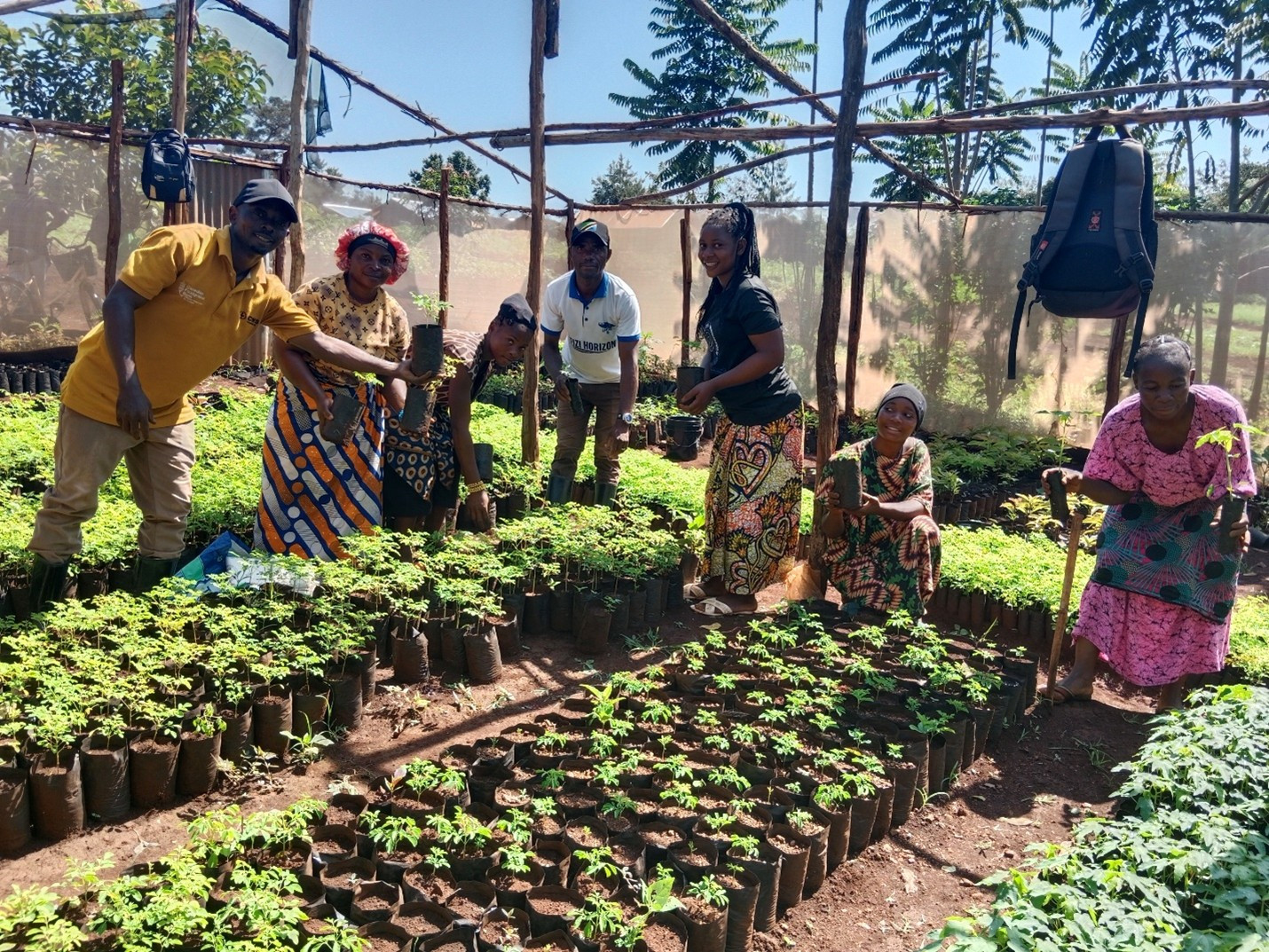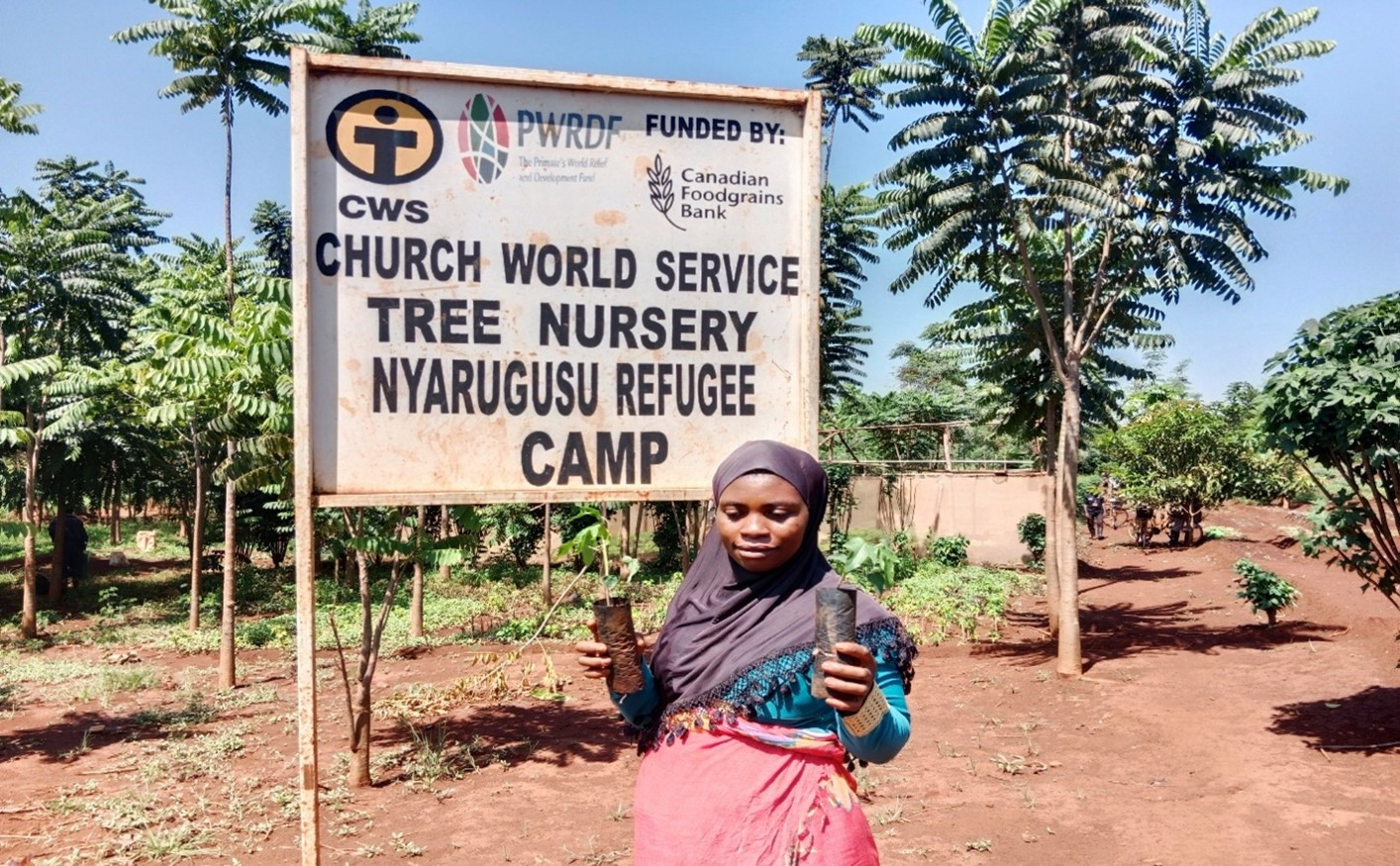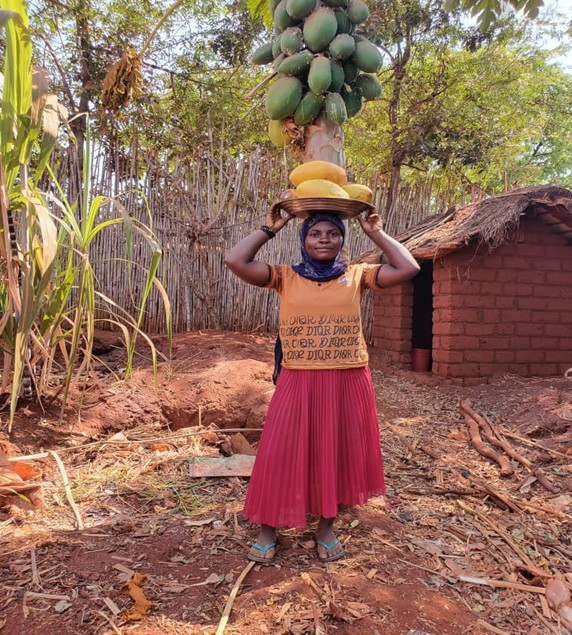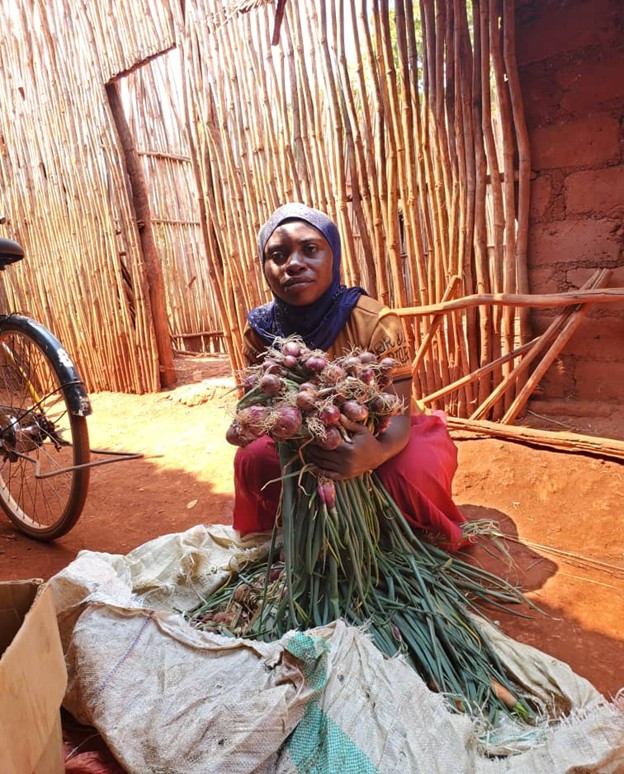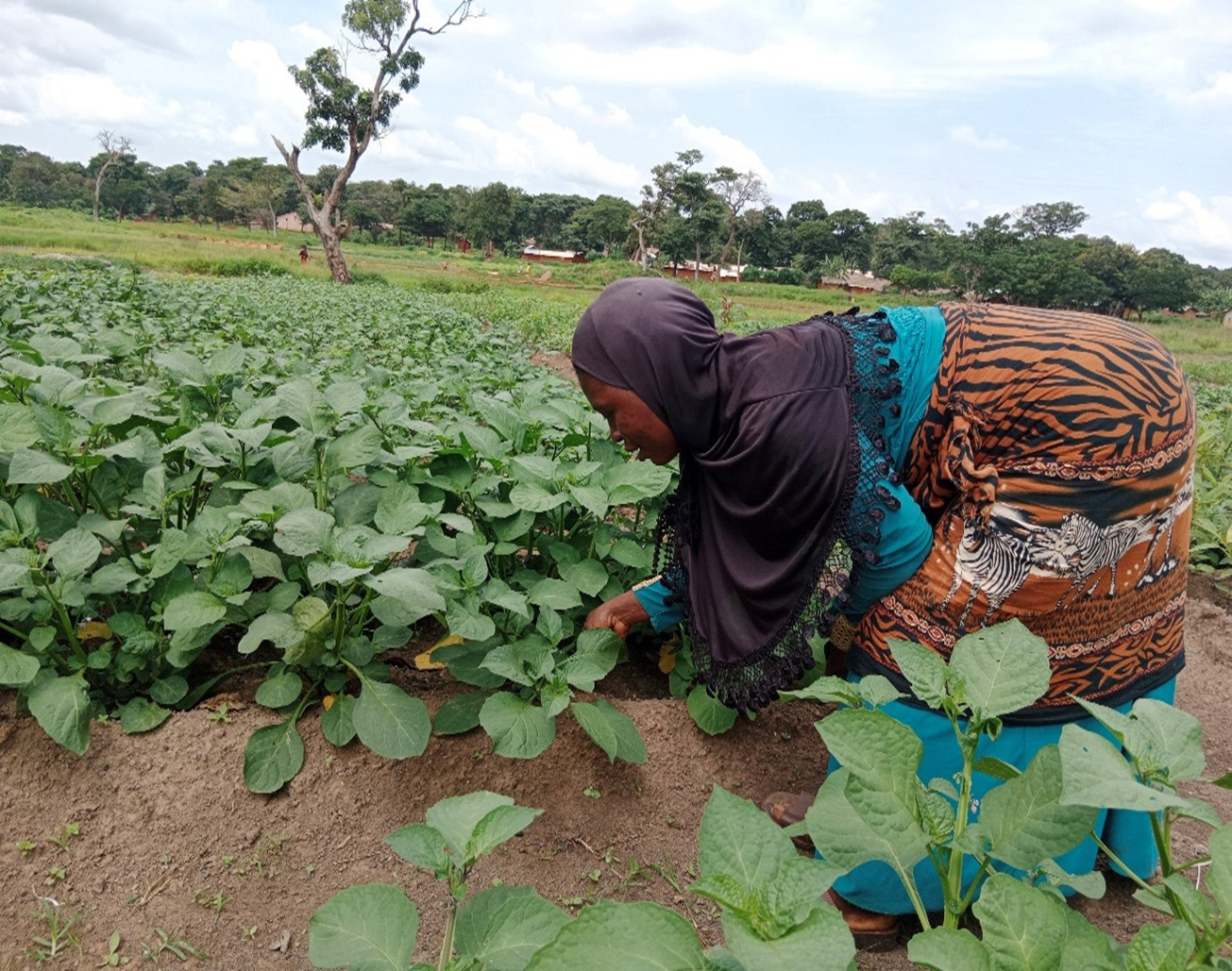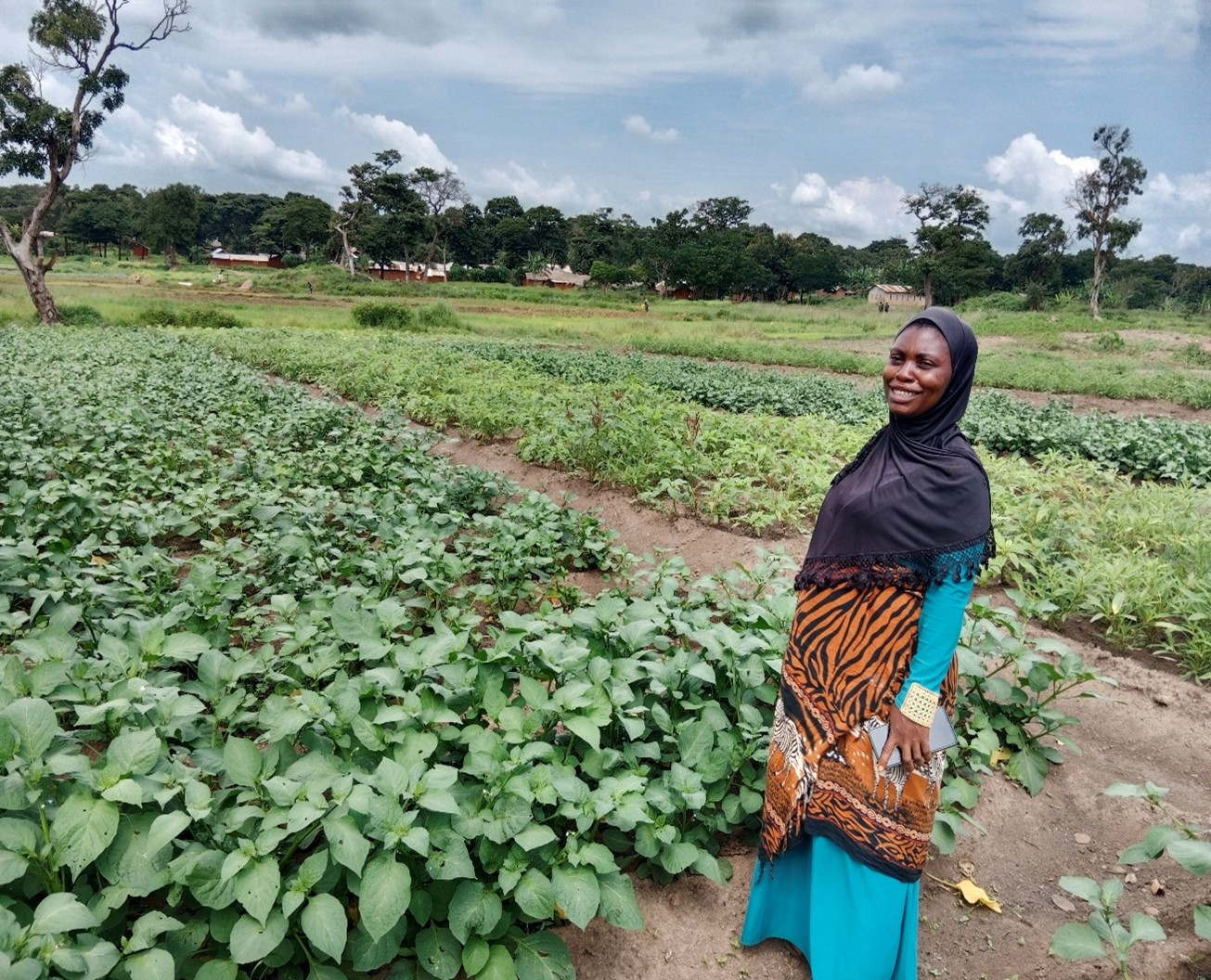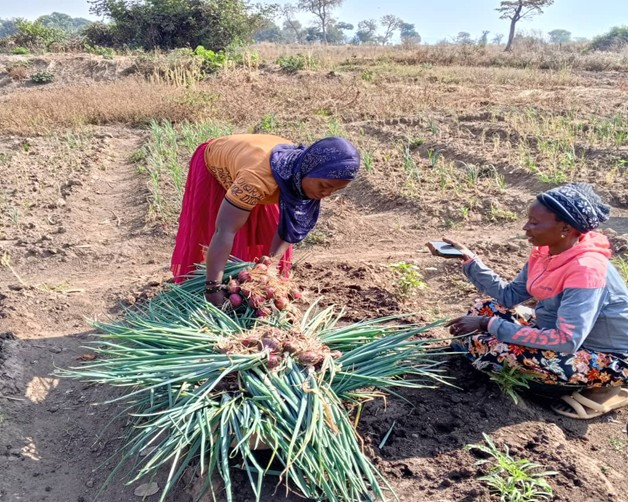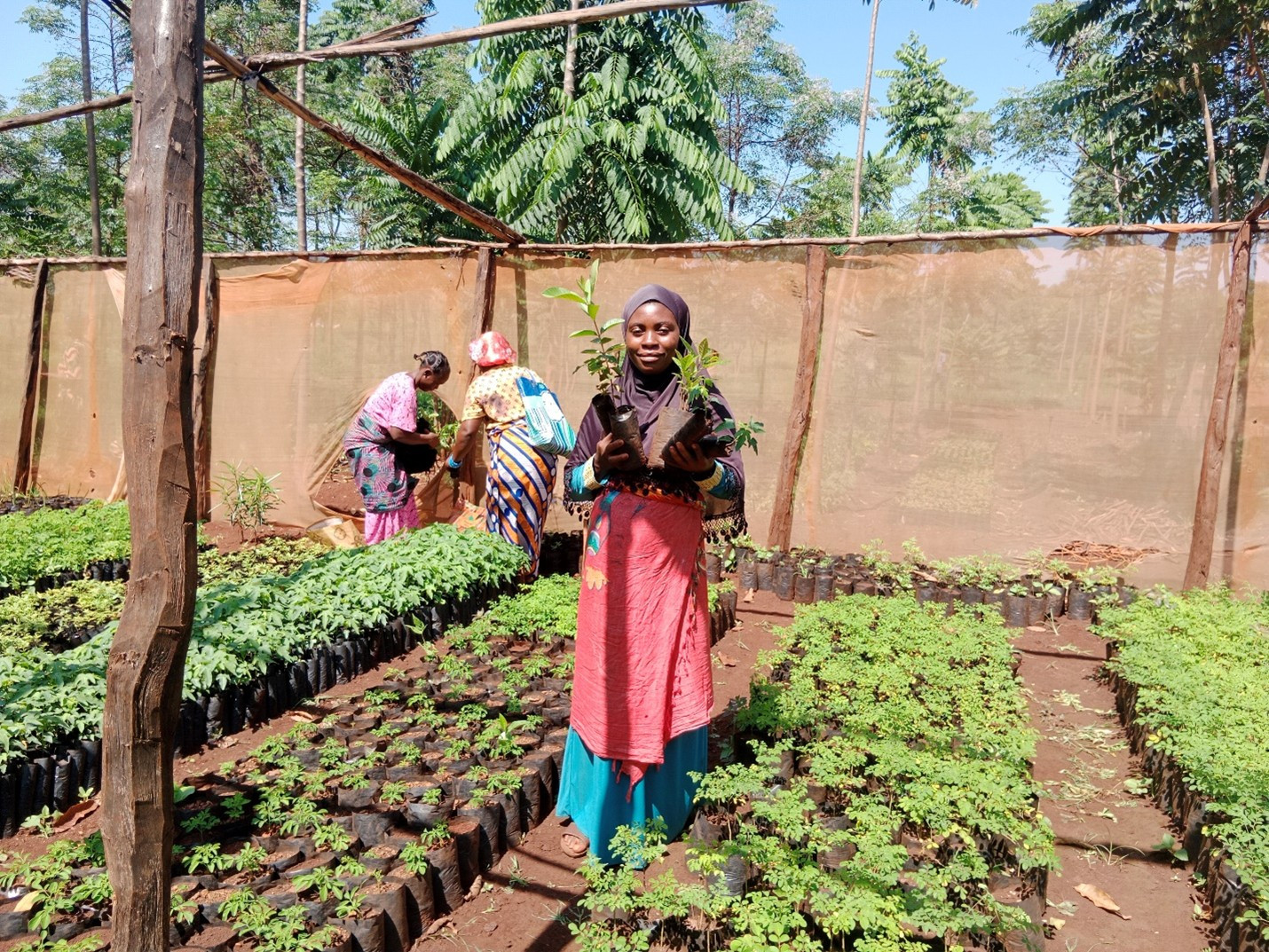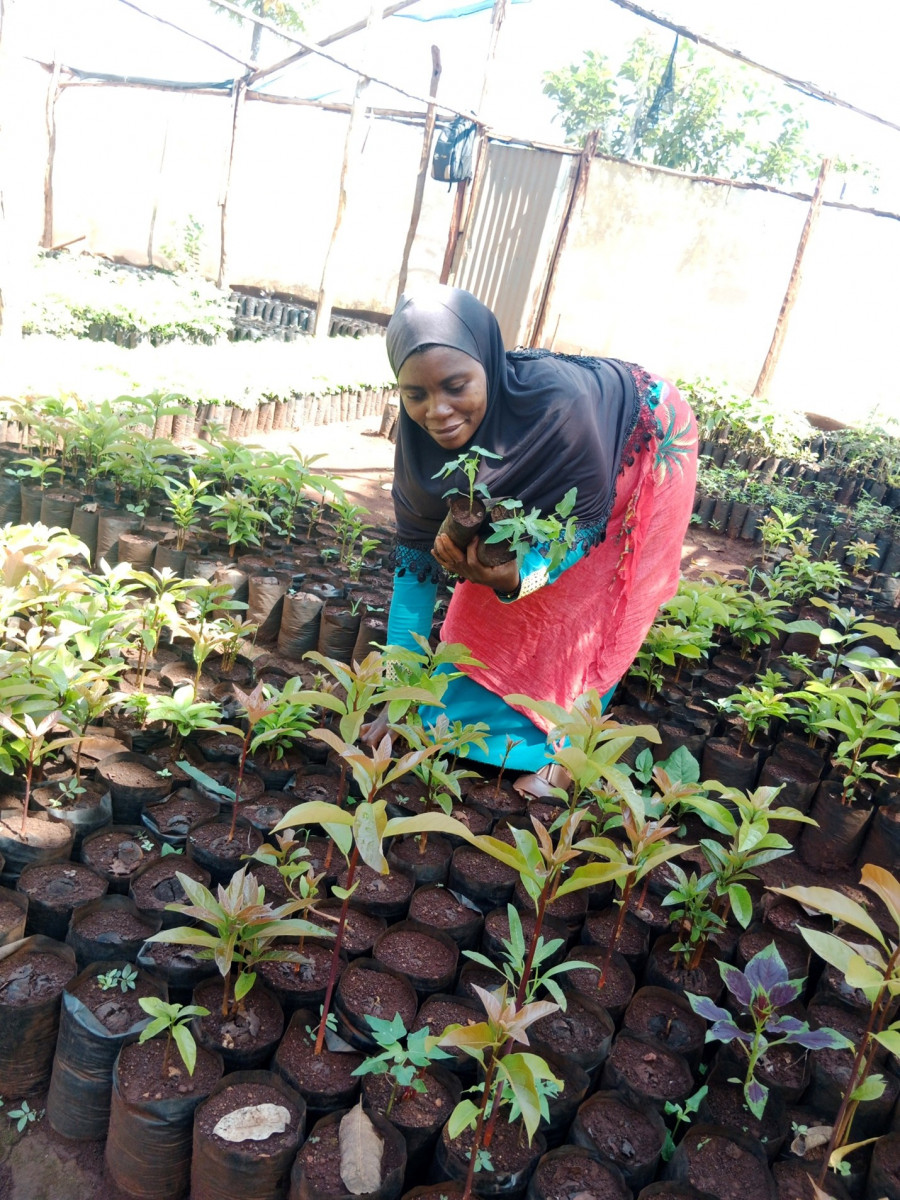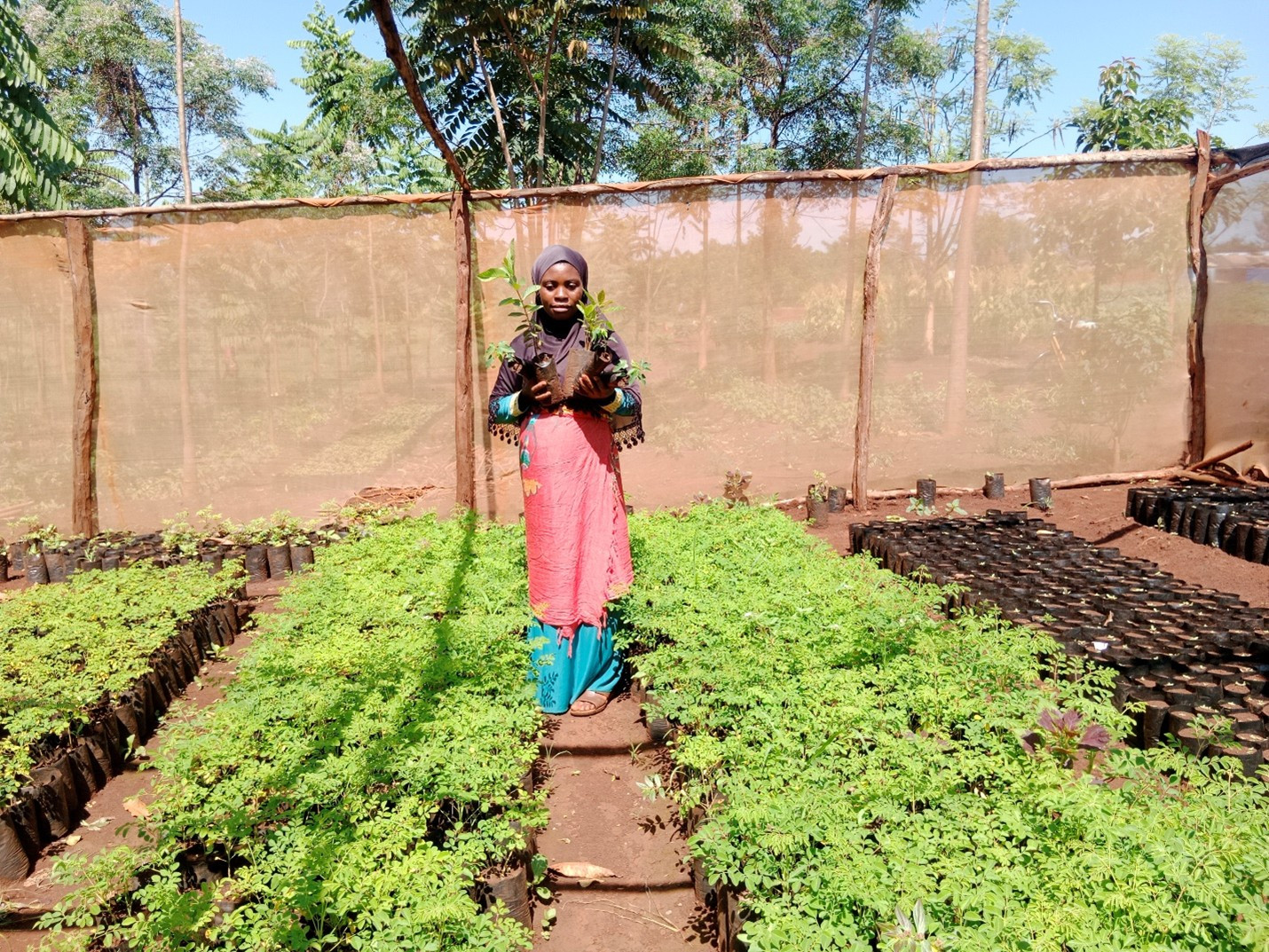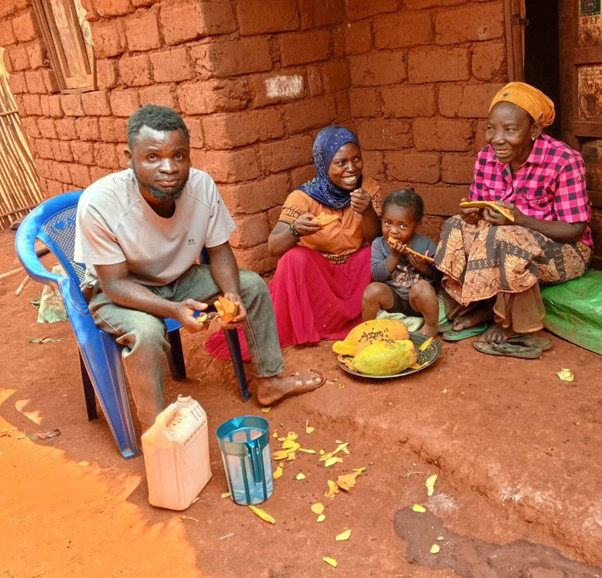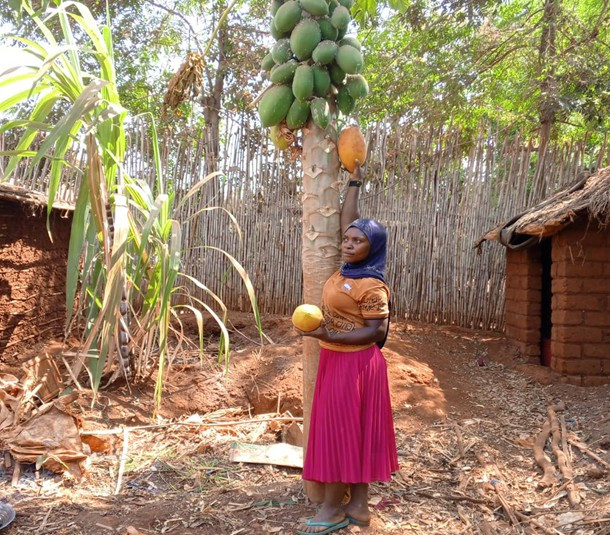In Tanzania’s Nyarugusu Refugee Camp, Matisho Justina transformed her family’s future by planting fruit trees through the CWS Wezesha Project. Her success not only brought fresh food and self-reliance to her household but also inspired a wider movement of sustainable agriculture in her community.
What if a fruit tree could change everything? For Matisho Justina, a refugee living in Nyarugusu Refugee Camp in Tanzania, the chance to plant one did more than provide food—it sparked a transformation.Through the CWS Wezesha Project (meaning “empower” in Kiswahili)—an initiative that equips refugees with essential skills in vegetable production, nutrition and tree planting—Matisho found a path to self-reliance and renewed hope. For participants like Matisho, this project is helping refugees like her grow more than crops—they’re growing futures.
Planting the Seeds of Possibility
From the moment she joined the project, Matisho was eager to learn and determined to create a better future for herself and her family. She was especially drawn to the tree planting training, inspired by a lifelong love for fruit and a dream of one day growing her own to share with loved ones. She was introduced to the concept of tree nurseries, where fruit and other tree seedlings are cultivated and distributed to participants. Encouraged by this new knowledge, she chose to focus on fruit tree cultivation in her home garden.
With patience and dedication, Matisho planted the seedlings she received. Just nine months later, her once-barren garden had transformed into a thriving orchard. What was once a rare treat in the camp—fresh fruit—became a daily source of nutrition and joy for her family. But the impact didn’t stop there.
Growing Change, One Tree at a Time
Matisho’s success has inspired a ripple effect throughout her community. Neighbors, motivated by the abundance in her garden and the high cost of fruit in the camp, are now exploring fruit tree planting themselves. Her story has sparked a movement—one rooted in hope, self-reliance and community resilience.
“Thanks to CWS for the knowledge and resources I gained from the Wezesha Project,” Matisho shares. “Nowadays I am not only feeding my family with fresh homegrown fruits but also contributing to a shift in my community’s approach to sustainable agriculture.”
Her journey is a powerful reminder of what’s possible when individuals are given the tools and support they need to thrive. It’s a testament to the transformative power of skill-building initiatives like the Wezesha Project, and to the strength and perseverance of refugees like Matisho Justina.
For Matisho, a ripe piece of fruit is more than nourishment—it’s the sweet reward of hard work, determination and the belief that a brighter future is always within reach.
We would like to thank our partners, the Canadian Foodgrains Bank and the Primate’s World Relief and Development Fund for allowing this assistance to be possible.
You can learn about our programs in Tanzania here. Sign the 2025 Ecumenical Statement on Hunger Justice to commit to being a safety net for neighbors near and far who are facing hunger.

